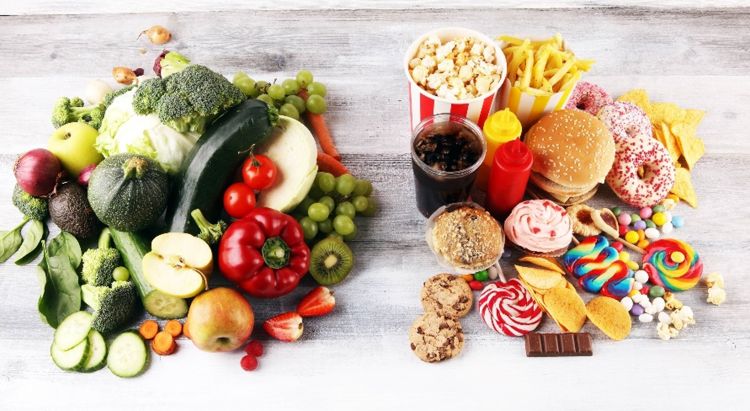Information for businesses
The council's Healthier Advertising Policy sets guidelines to address the impact of advertisements for unhealthy food and drinks on child health. It ensures that advertisements promote healthier choices.
We do this by restricting the advertising of foods and non-alcoholic drinks that are high in fat, sugar, and salt (HFSS) in or on council-owned advertising spaces and through council-procured advertising service contracts. Instead, businesses are encouraged to promote their healthier products to customers.

Who the policy applies to
The policy applies to businesses and organisations that advertise with the council. If you advertise through the council, it's important to familiarise yourself with and follow the policy.
What advertising opportunities the policy covers
The policy covers all advertising opportunities on council-owned estates, assets and through our procured advertising service contracts. This includes hoardings, banners, bus stops and more. Both digital and print formats are included.
Adverts that are restricted under the policy
Advertisements on council-owned spaces cannot feature food or non-alcoholic drinks that are high in fat, salt, and sugar (HFSS).
Adverts that are allowed under the policy
The policy promotes healthier advertising. The policy does not stop advertising. Instead it restricts advertising of food and non-alcoholic drinks that are HFSS. Any other food and drink that is not HFSS and complies with the policy will be allowed.
How to find out if your food and/or non-alcoholic drink is high in fat, salt and/or sugar (HFSS)
The Nutrient Profiling Model (NPM) helps determine if a food or non-alcoholic drink product is high in fat, salt, and sugar (HFSS). It does this by providing your food and/or non-alcoholic drink with an score.
The Nutrient Profiling Model and how to use it
The Nutrient Profiling Model (NPM) is a tool backed by science which is used to assess if a food or drink item is HFSS.
Technical guidance on how to use the NPM is available from the Department of Health and Social Care.
The Consumer Data Research Centre at the University of Leeds has developed a Nutrient Profiling Model (NPM) calculator. It calculates NPM scores and lets you know if your product is policy compliant. The NPM calculator is a helpful tool. Guidance on how to use the nutrient profiling model calculator is available on our healthier advertising policy page, under the section ‘The nutrient profiling model and calculator'.
The council's Public Health team can help Small and Medium Sized Enterprises (SMEs) learn how to use the NPM. SMEs are organisations with fewer than 250 employees and an annual turnover of less than €50 million.
If you are an SME and need help using the NPM, please email healthier-advertising-policy@towerhamlets.gov.uk.
HFSS scores
- Food is HFSS if it scores four points or more
- Non-alcoholic drinks are HFSS where it scores one point or more
List of non-HFSS foods and non-alcoholic to use as a starting point
Whether a food or non-alcoholic drink can be advertised depends on its nutrient profile model. This can be assessed using the nutrient profiling model.
While there's no extensive list, the following table provides some examples of what foods and non-alcoholic drinks can and cannot be advertised.
Always check your product score using the nutrient profiling model.
Food that can/cannot be advertised
| Foods that can be advertised | Foods that cannot be advertised |
|---|
|
Wholemeal and white bread
|
Crisp including low fat
|
|
Fresh fruit and vegetables
|
Most breakfast cereals
|
|
Most nuts
|
Cheddar cheese, half and full fat
|
|
Salads with no dressing or croutons
|
Butter and margarine
|
|
Most brands of baked beans
|
Most sausages and most burgers
|
|
Some brands of baked oven chips
|
Raisins and sultanas
|
|
Some brands of chicken nuggets
|
Cookies
|
|
Fish fingers
|
Confectionary
|
|
Chicken breast
|
Mayonnaise, reduced and full calorie |
|
Unsweetened fruit juice
|
Most pizzas |
|
Diet cola
|
Sweetened milkshakes
|
What happens when an advert’s focus isn’t food or drink, but it’s referenced or implied
When food and drink products are referenced or implied in an advertisement, the policy still applies.
Businesses that use stock images in their advertising
These businesses can still advertise if the images don't show HFSS food and non-alcoholic drink products.
Benefits to businesses of complying with the healthier advertising policy
Complying with the policy demonstrates
- your commitment to promoting healthier choices
- enhancing your brand image
- attracting health-conscious customers
- potentially increasing customer loyalty.
Next steps for businesses who advertise with the council
For detailed information, including specific requirements and guidelines please read the healthier advertising policy document. The policy document, as well as information about the nutrient profiling model and the calculator can be downloaded on the healthier advertising policy page.
Please use these tools to ensure your adverts follow the council’s healthier advertising policy.
If you have further questions, please email healthier-advertising-policy@towerhamlets.gov.uk